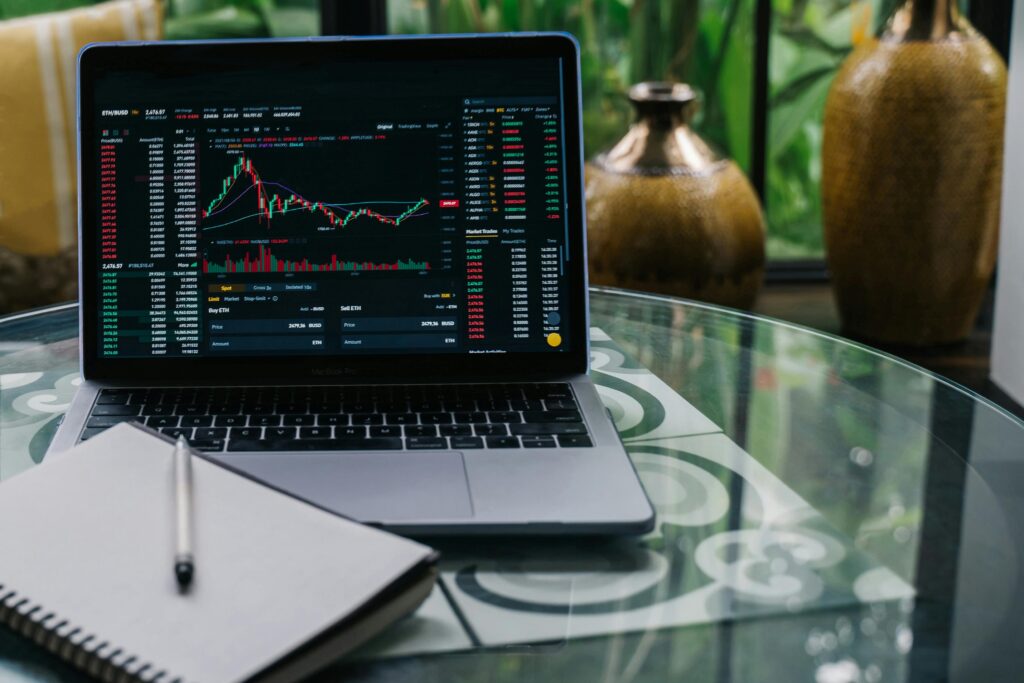
In the fast-paced world of manufacturing companies, staying ahead means embracing cutting-edge manufacturing technology and innovations. Companies that resist change risk falling behind in the competitive landscape. The contrast between traditional methods and modern advancements is stark, with those leveraging technology reaping benefits like improved efficiency, cost savings, and enhanced product quality.
Embracing these innovations isn’t just an option; it’s necessary for survival and growth in today’s market. This blog post delves into the transformative impact of manufacturing technology on businesses, exploring how adopting these advancements can revolutionize operations and drive success in the dynamic manufacturing sector.
Table of Contents
- 1 Economic Impact of Manufacturing
- 2 Technological Advances in Manufacturing
- 3 Challenges Facing Manufacturing Companies
- 4 Opportunities for Growth and Innovation
- 5 Role of Policy and Regulation
- 6 Impact on Society and Standards of Living
- 7 The Future of Manufacturing Technology
- 8 Summary
- 9 Frequently Asked Questions
- 9.1 What is the economic impact of manufacturing?
- 9.2 How do technological advances benefit manufacturing companies?
- 9.3 What are the main challenges facing manufacturing companies today?
- 9.4 How can manufacturing companies leverage opportunities for growth and innovation?
- 9.5 What role do policy and regulation play in the manufacturing sector?
Economic Impact of Manufacturing
Driving global growth
Manufacturing companies drive global growth by implementing strategic expansion plans to tap into new markets. They capitalize on international market opportunities to increase their customer base and establish themselves as key players in the international arena by enhancing their global market presence.
Boosting GDP and trade
Manufacturing plays a vital role in boosting GDP and trade by contributing to economic growth through its production activities. Companies increase export volumes, thus boosting trade and strengthening the economy. The manufacturing sector’s activities contribute significantly to strengthening GDP, ensuring a stable economic foundation.
Creating job opportunities
Manufacturing companies play a crucial role in generating employment opportunities in the sector. They offer diverse job roles for skilled workers, ranging from production line operators to engineers. By providing jobs, these companies support individuals and benefit local communities by driving economic growth through job creation.
Technological Advances in Manufacturing
Innovations shaping the sector
Manufacturing companies are introducing cutting-edge technologies to streamline operations and boost efficiency. These companies aim to optimize production processes by incorporating advanced machinery and robotics. The implementation of automation has significantly enhanced productivity levels within manufacturing facilities.
At the forefront of progress, manufacturing firms are actively embracing Industry 4.0 advancements to drive innovation. This includes integrating smart technology, data analytics, and artificial intelligence into their operations. These innovations improve overall efficiency and pave the way for future growth and development.
Digital transformation
Manufacturing companies prioritize digital solutions to streamline processes in today’s rapidly evolving landscape. Leveraging software applications and digital platforms can enhance communication channels and optimize workflow management. Moreover, adopting advanced data analytics tools enables these firms to make informed decisions based on real-time insights.
Incorporating Internet of Things (IoT) devices has revolutionized the manufacturing sector by enabling real-time monitoring and control capabilities. Companies can track production metrics, monitor equipment performance, and ensure optimal resource utilization through interconnected sensors and devices.
Sustainable Manufacturing Practices
As environmental concerns continue to rise, manufacturing companies increasingly focus on implementing eco-friendly production methods. These firms aim to reduce their carbon footprint and minimize environmental impact by utilizing renewable energy solutions and sustainable materials. Furthermore, initiatives such as recycling programs and waste reduction strategies are crucial in promoting sustainability within the sector.
Challenges Facing Manufacturing Companies
Global competition
Manufacturing companies face intense global competition in their quest for market dominance. To secure market share, companies must navigate competitive landscapes strategically. They achieve this by focusing on quality and fostering a culture of innovation. By continuously refining their processes, they can stand out amidst fierce competition. Expanding market reach is crucial to compete globally and tap into new customer bases.
Supply chain disruptions
Mitigating risks posed by supply chain disruptions is paramount for manufacturing companies. Implementing resilient supply chain strategies helps them weather unforeseen challenges effectively. They can swiftly address disruptions and minimize their impact with robust contingency plans. Ensuring business continuity amidst supply chain challenges requires proactive measures and adaptability.
Adapting to market demands
Manufacturing companies must exhibit flexibility in production to align with ever-changing consumer needs. Responding promptly to shifting market trends enables them to stay ahead of the curve. Customizing products based on demand fluctuations allows companies to efficiently cater to specific customer requirements. By adapting swiftly to market demands, manufacturers can enhance customer satisfaction and maintain a competitive edge.
Opportunities for Growth and Innovation
Smart manufacturing
Implementing smart technologies can help manufacturing companies embrace smart technologies, streamline operations, and achieve higher efficiency levels. Connectivity improvements within manufacturing processes enable real-time data sharing, which fosters quicker decision-making and enhances overall productivity. Furthermore, integrating IoT for predictive maintenance minimizes downtime and reduces operational costs.
Reshoring initiatives
Reshoring involves bringing back manufacturing operations to domestic locations. This strategy bolsters local economies by creating more job opportunities. It fortifies supply chain resilience by reducing dependencies on foreign sources. By reshoring initiatives, companies can ensure better quality control and faster response times to market demands.
Addressing global challenges locally
Manufacturing innovations allow companies to tackle global issues with localized solutions. By focusing on sustainability at a local level, businesses contribute to environmental preservation efforts. Addressing challenges like climate change through localized actions demonstrates a commitment to responsible corporate citizenship. This approach benefits the environment and resonates positively with consumers who prioritize eco-friendly practices.
Role of Policy and Regulation
Supporting innovation
Manufacturing companies are crucial to driving continuous innovation by investing in research and development (R&D). This investment fuels the development of new technologies and processes. Companies can stay ahead of the competition by fostering a culture of creativity and idea generation.
Collaboration with technology partners is essential for manufacturing companies to achieve disruptive innovations. These partnerships bring together expertise from different fields, leading to groundbreaking advancements in manufacturing technology.
Enhancing labor standards
Manufacturing companies must prioritize safe working conditions for their employees to ensure sustainable growth. Adhering to strict safety protocols reduces workplace accidents and promotes employee well-being. Upholding fair labor practices throughout the supply chain is crucial for maintaining ethical standards.
Empowering workers through training programs enhances their skills, boosting overall productivity within the company. Employees feel valued and are more likely to contribute effectively to the organization by providing opportunities for skill development.
Fostering economic resilience
Manufacturing companies face various economic uncertainties, making building resilience against unforeseen challenges crucial. Diversifying revenue streams helps companies maintain stability during economic downturns, and adapting business models to changing market conditions ensures long-term sustainability.
Impact on Society and Standards of Living
Improving quality of life
Manufacturing companies play a crucial role in enhancing employee well-being by implementing various work-life balance initiatives. These initiatives include flexible working hours, remote work options, and wellness programs to support employees’ physical and mental health.
Moreover, manufacturing firms actively engage in community development projects to uplift local residents’ living standards. They often collaborate with non-profit organizations to improve access to education, healthcare, and basic amenities in underprivileged areas.
By supporting social causes such as environmental conservation, education, and healthcare, manufacturing companies contribute significantly to improving the quality of life for individuals and communities. This involvement fosters a sense of social responsibility among employees and enhances their overall societal well-being.
Environmental sustainability
In line with global efforts towards sustainability, manufacturing companies are increasingly focusing on implementing green initiatives within their operations. These initiatives aim to minimize waste generation, reduce carbon emissions, and promote eco-friendly practices throughout the production process.
Manufacturers are actively reducing energy consumption by adopting energy-efficient technologies and practices to address environmental concerns. These companies strive to lessen their ecological footprint and minimize environmental impact by optimizing resource utilization and minimizing waste production.
Furthermore, many manufacturing firms are transitioning towards promoting renewable energy sources for their production activities. By harnessing solar, wind, and hydroelectric power, these companies reduce reliance on fossil fuels and contribute to the shift towards a more sustainable energy landscape.
Local Community development
Manufacturing companies recognize the importance of engaging in community outreach programs to create a positive social impact. Through partnerships with local organizations and charities, these firms support initiatives that address pressing social issues and improve the overall well-being of community members.
Manufacturing companies support local businesses and stimulate economic growth within their operating regions. This support extends beyond direct employment opportunities to foster entrepreneurship and enhance the local supply chain ecosystem.
Investment in infrastructure is another key area where manufacturing companies contribute to local communities. By funding projects such as road construction, water supply systems, or educational facilities, these firms play a vital role in enhancing residents’ overall infrastructure and quality of life.
The Future of Manufacturing Technology
Predicting industry trends
Manufacturing companies must stay ahead by anticipating market shifts to make informed decisions. By closely monitoring technological advancements, they can adapt and evolve efficiently. Analyzing consumer behavior trends is crucial for driving product innovation and meeting changing demands.
Preparing for the next evolution
Companies need to embrace emerging technologies like automation and AI to thrive in the future. Upskilling the workforce is essential to prepare for upcoming industry changes, and investing in research and development is key to staying ahead of industry transformations.
Strengthening global positions
Expanding market reach is vital for manufacturing companies to gain global influence and access new opportunities. Forming strategic partnerships allows them to collaborate, innovate, and achieve market dominance. Enhancing brand reputation is crucial for establishing global recognition and trust among consumers.
Summary
Reflect on the economic impact, technological advances, challenges, growth opportunities, policy influence, societal implications, and future trajectory of manufacturing companies. Embrace innovation, navigate challenges, and leverage policies to shape a sustainable future for manufacturing. Your role in supporting advancements and advocating for conducive policies is vital. Stay informed, engaged, and proactive in driving positive change within the manufacturing sector.
Your actions today could pave the way for tomorrow’s more efficient, sustainable, and impactful manufacturing industry. Embrace innovation, advocate for supportive policies, and champion responsible practices to ensure a prosperous future for manufacturing. Together, we can shape a landscape where companies thrive, technologies evolve, and societies benefit. Keep pushing boundaries and fostering growth in the manufacturing realm.
Frequently Asked Questions
What is the economic impact of manufacturing?
Manufacturing significantly contributes to economic growth by creating job opportunities, boosting exports, and driving innovation. It plays a vital role in generating revenue for countries and fostering overall economic development.
How do technological advances benefit manufacturing companies?
Technological advances enhance efficiency, increase productivity, and improve product quality in manufacturing processes. Automation, IoT, AI, and 3D printing are revolutionizing the industry by streamlining operations and reducing costs.
What are the main challenges facing manufacturing companies today?
Manufacturing companies face challenges such as global competition, supply chain disruptions, skills gaps in the workforce, and rapid technological changes. Key concerns include adapting to market demands, ensuring sustainability, and maintaining regulatory compliance.
How can manufacturing companies leverage opportunities for growth and innovation?
Manufacturing companies can seize opportunities by investing in research and development, adopting sustainable practices, embracing digital transformation, exploring new markets, and collaborating with technology partners to drive innovation and stay competitive.
What role do policy and regulation play in the manufacturing sector?
Policy and regulation influence manufacturing practices by setting standards for safety, environmental protection, labor laws, trade agreements, taxation policies, and incentives. Compliance with regulations ensures ethical business practices and sustainability in the industry.
